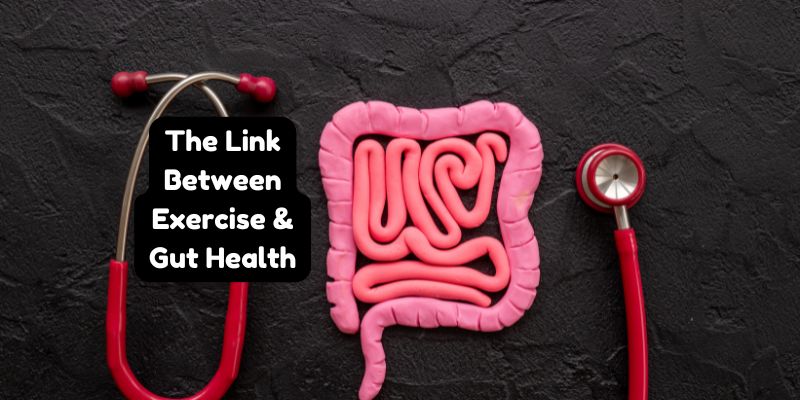Is It ADHD Or Just Quirkiness: Here Are The 4 Signs You Need To Look For
People can be quirky sometimes; however, what if it's more? Because its symptoms can seem to be benign personality qualities, Attention Deficit Hyperactivity Disorder (ADHD) sometimes remains unreported. Many individuals confuse these qualities for originality or eccentricity. Still, assistance and understanding depend on the diagnosis of ADHD.
ADHD seriously disrupts common daily functioning. It goes beyond simple distraction or hyperactivity. The indicators can seriously affect relationships, employment, and self-esteem. Four main symptoms will be discussed in this article to assist you in differentiating ADHD from simple quirkiness.

Differentiating ADHD from Quirkiness: 4 Signs You Need To Look For
Here are four signs you need to look for when differentiating ADHD from quirkiness:
Persistent Forgetfulness and Disorganization
There is typical occasional forgetting of stuff. However, ADHD brings regular and disruptive forgetfulness. Those with ADHD may routinely miss appointments, lose keys, or struggle to follow through on chores. Many times, this amnesia disrupts daily life and obligations. Another indication is disorganization. It's not about being dirty; it's about regularly battling to control time and space. Workspaces may be messy, and sometimes valuable objects vanish. The way the ADHD brain interprets information drives these challenges. Tasks requiring planning, for instance, can feel burdensome. Maintaining schedules or breaking apart initiatives gets difficult. More than a personality flaw, this ongoing struggle with the organization is a classic indicator of ADHD. If you find someone routinely missing appointments or tasks, you should consider ADHD.
Difficulty Staying Focused for Long
While everyone gets sidetracked, ADHD magnifies this challenge. Those with ADHD often struggle to focus on one project for a prolonged length of time. Staying committed is difficult even if the work interests them. That is not resulting from sloth or lack of discipline. The ADHD brain struggles to block distractions. Someone might begin several chores, for example, but not finish them. They might also show inattention in talks, making others believe they are bored. This trouble focusing can lead to incomplete projects or inadequate performance in the classroom or the office. It's not a matter of choice; rather, it's how ADHD compromises their capacity for focus. While distractions are common, ADHD causes them to arise so often that they interfere with daily life. Consistent patterns indicate most likely ADHD rather than just a quirky personality feature.
Impulsivity That Affects Decisions
Among the classic symptoms of ADHD is impulsiveness. It's acting without considering the implications, not just being wild or daring. Someone with ADHD might, for instance, interrupt people in a conversation or talk out of turn. They might act quickly, perhaps overpaying or suddenly leaving a job. Many times, these impulsive acts cause regrets and damaged relationships. Driving conduct can also show impulsiveness. Common among those with ADHD are quick lane changes, speeding, and dangerous maneuvers. This lack of impulse control results from how their brain works; it is not deliberate. While everyone has impulsive times, ADHD causes these actions to happen more frequently, therefore influencing daily life and decision-making. It's another obvious sign that transcends oddity.
Intense Emotional Responses
ADHD affects emotions in addition to concentration and degree of activity. People with ADHD often react emotionally more intensely. Little inconveniences could set up strong annoyance, resentment, or despair. That is not merely moody behavior. It results from ineffective emotional regulation. After a fight, for instance, someone might struggle to cool off. Little setbacks can seem like major challenges, perplexing others nearby. These emotional flash-points can strain relationships. Loved ones may read them as too sensitive or as an overreaction. Still, the main sign of ADHD is emotional dysregulation. Crucially, one must understand these emotional tendencies. It emphasizes how different a neurodevelopmental disorder like ADHD is from a quirky personality.

What ADHD Looks Like in Adults vs. Children?
ADHD can show differently in adults and children. Children who show hyperactivity typically make the illness easier to spot. They could have trouble waiting for their turn, interrupt teachers, or find it difficult to stay. By contrast, adults could have less clear hyperactivity. Rather, they could seem restless and regularly switch occupations or interests.
Given deadlines are often ignored, time management can be a major problem. Though the environment changes, both groups struggle with impulse and attention. It affects school performance for kids. For adults, it can tax relationships and professions. Knowing these differences can allow one to identify ADHD in all age groups.
Why Early Identification Matters?
Early diagnosis of ADHD can significantly improve things. Ignoring it might cause anxiety, poor self-esteem, or depression. Because they lack awareness of their difficulties, many adults with undiagnosed ADHD experience emotions of failure.
Early identification lets one create customized plans and treatments. Behavioral treatment, medicine, or coaching can greatly enhance quality of life. One can learn to control one's shortcomings by using one's abilities. Early knowledge of these signs and professional assistance guarantee better results for adults and youngsters.
The Importance of Professional Diagnosis
Although the indicators in this guide are helpful, only a specialist can identify ADHD. Comprehensive assessments let psychologists or psychiatrists decide whether a person satisfies the requirements. Self-diagnosis might cause unwarranted concern or false presumptions. Symptoms of ADHD cross various disorders, including anxiety or sadness. Professional assessment guarantees correct treatment and accuracy.
Reaching out to a healthcare provider is a crucial first step if you or someone you know has difficulty with the indicators described. Diagnosis results in comprehension; understanding results in development.
Conclusion:
Everybody has a unique personality. However, it could be ADHD when features like forgetfulness, impulsivity, or extreme emotions disturb daily life. Understanding these indicators helps one find the appropriate direction and encouragement. Understanding and appropriate treatment help one manage ADHD; it is not a restriction. Consider consulting a specialist for clarity if you find recurring trends like those above. Early awareness can greatly enhance relationships and quality of life.












